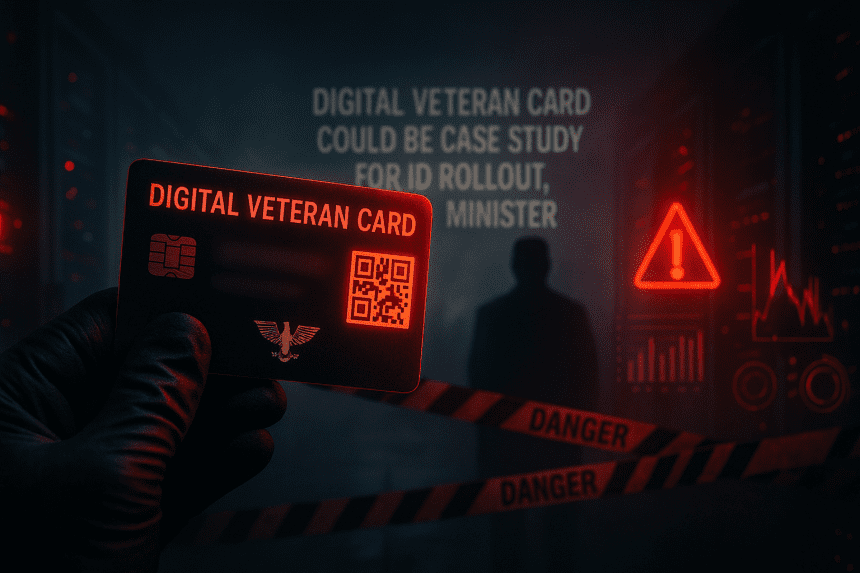The UK finally steps into the identity digital age with one card & it’s first up, the Veterans Card. At first blush, it seems like a modern convenience: All that hassle of fishing change out of your wallet, trudging to the counter with something heavy in one arm things of the past. But if you look closer, it’s easy to read this as an experimental site for something much bigger. Ministers call it a “case study.” It is, in fact, the pilot for how we’re all going to authenticate ourselves in years to come. For veterans the move is a no-brainer. Have the old card? Launch the digital version in One Login.
New applicants can have paper and digital cards from the start. Already, some 300,000 veterans are eligible to participate, a figure that will only grow. It’s fast, easy and, for a lot of people, a sigh of relief after years of red tape. It is all about One Login. Imagine an official government-issued digital wallet with your certified documents on your phone. Short term that may just involve your Veteran Card but we have a much larger vision than that. Digital driving licences come next, and after that other credentials which might eventually replace anything from proof of one’s age to whether an individual is entitled to work.
And yes, that’s where the rubber hits you. Digital ID is needed for right to work checks, and the government wants them to be mandatory before this Parliament ends. So, instead of swiping passports, employees can scan credentials through the app. That will certainly make on-boarding slicker and cut down admin but it also raises some big debates about privacy and control. What happens when, instead of being an aid to citizens at large, a digital I.D. is required? For veterans, however, it’s a life changer. You don’t need the stack of papers anymore, you just phone tap them. It is quicker to get into healthcare and easier to apply for housing support, and it’s easier to work out who we are.” That’s progress you can feel in your bones. But it poses questions that we cannot risk ducking. Who protects the data? Who audits the system? And when something goes wrong, who’s to blame? Officials say the system is designed to protect privacy (it’s a federated approach, not one giant database) and that people will be in charge of what gets shared. It sounds reassuring.
But trust is about evidence, not promise. It depends on independent testing, open audits and transparent reporting of what people actually believe. And if it works out, this rollout might just kick off a digital identity revolution one that makes life more convenient without selling out our privacy. Done right, that could mean smoother services and fewer headaches. Done badly, it will simply put up new walls and take down the old. The truth? Here, it’s not the technology that is the most challenging. Trust is. On one hand, the digital Veteran Card is just a card but on the other it’s asking us whether we can really begin to build an identity system in the UK that people trust. And the response will shape not only policy, but also how we live, work and demonstrate who we are in the digital age.


















